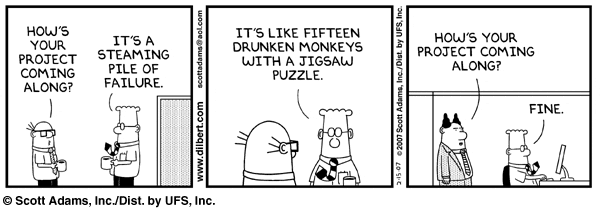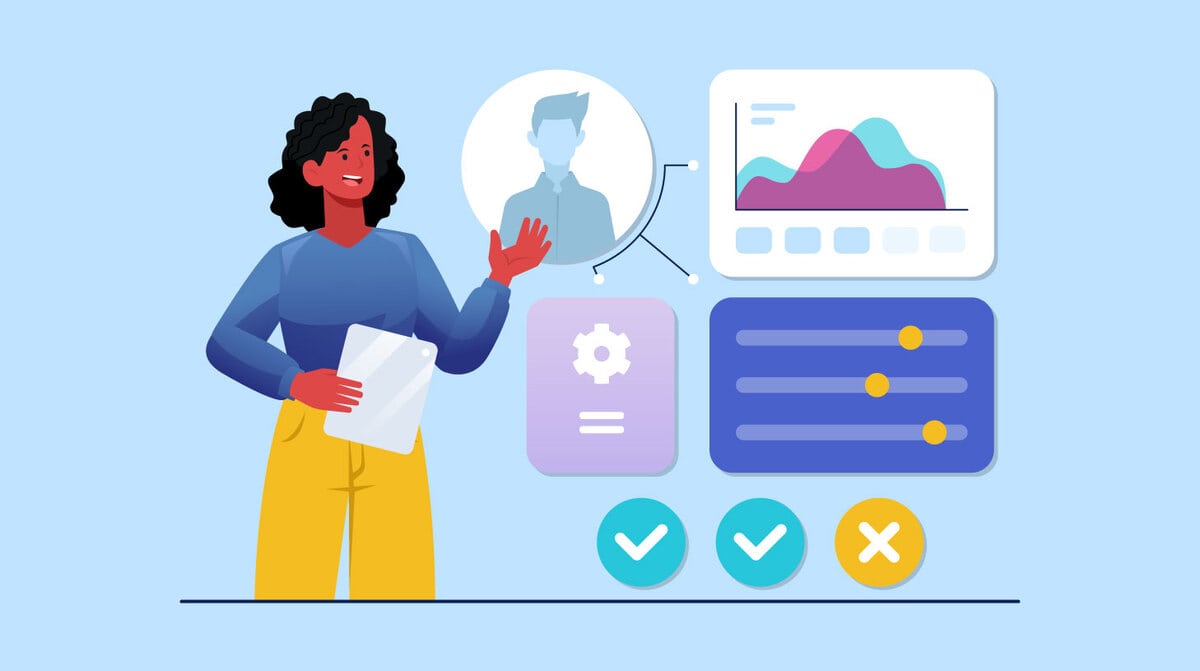In our blog post on the value of structured vs.unstructured interviews, we talked about focusing on competencies as a way to ensure your interview process is fair and consistent.
In fact, you’ll often hear the terms competency-based interview used interchangeably with a structured interview and behavioral interview.
The idea is that an effective structured interview should be based primarily on behavioral questions about key competencies for the position. Simply said, knowing what is a must-have for the job, will make your hiring much easier and less stressful.
Before we can celebrate your next successful hire, it’s time to thoroughly prepare the structural interview. Your starting point is, of course, choosing the most important competencies to serve as a basis for every interview for the position.
What does competency mean?
Let’s start with the basics – what exactly is a competency?
There are a lot of different competency definitions out there, but the one we most often use when defining competencies is the one from the Society for Human Resources Management (also known as SHRM).
A competency is a cluster of highly interrelated attributes, including knowledge, skills, and abilities (KS for short) that give rise to the behaviors needed to perform a given job effectively.
COMPETENCY = KNOWLEDGE + SKILLS + ABILITY
In other words, a competency defines a broader scope than just the skills somebody should have for the job. A competency encompasses talents, interests, and potential to excel in related skills and behaviors, even those not yet exhibited.
For example, let’s imagine you’ve defined a needed skill for your role as Writing Project Reports. In this case, you may decide to prioritize the key competency of Written Communication.
This goes beyond just determining if the candidate has an established skill in Writing Project Reports.
Someone may have experience writing project reports without being a particularly good writer, after all.
And you may choose NOT to define Written Communication as a core competency if the role is more technical and just requires the occasional competent writing of project reports.
On the other hand, a Written Communication competency will be more important for someone with multiple writing and communication-related responsibilities, with the project, reports being just one of the most predictable.
Looking at competencies gets you beyond a limited focus on day-to-day tasks and takes into account the candidate’s strengths and potential ability to excel in related areas.
You may have heard references to two main types of competencies:
- commonly referred to as “soft” competencies or “behavioral”; and
- “hard” competencies or “technical.”
Soft (Behavioral) Competencies
Soft competencies tend to focus on abilities and personality characteristics — ways of thinking and behaving.
For example, analytical thinking, interpersonal ability, and initiative.
These competencies tend to rely on some degree of natural talent or strength, though they can certainly be honed and improved over time.
Hard (Technical) Competencies
In contrast, technical competencies are primarily developed through study and practice.
For example, Project Management, Programming, or Written Communication.
Of course, some people may have a more natural talent in learning and mastering certain technical competencies than others.
So you will see some overlap between soft and hard competency areas.
For example, someone with a “soft” analytical thinking competency will probably naturally excel in certain technical competencies.
Knowledge, Skill, and Ability
We said earlier that competencies consist of the three elements – knowledge, skills, and abilities. All three elements are critical for effective performance in any job.
For example, a great Project Manager will likely possess:
- KNOWLEDGE of best practices of project management, along with expertise related to the type of project — for example, related industry or technical knowledge.
- SKILLS in managing timelines, tracking key milestones, navigating required software, communicating with team members and stakeholders.
- ABILITIES like problem-solving, attention to detail, and managing conflict.
These abilities help prepare a good project manager to learn new required skills, deal with unexpected obstacles, improve processes, and otherwise grow in the role.
Prioritize The Most Important Competencies
The biggest challenge for most managers is prioritizing which competencies are MOST important for the job position they are hiring.
As hiring managers, we’re always looking for the perfect candidate, that potential superstar. In an ideal world, that is someone with many different competencies.
Hiring is expected to become more competitive in the next 12 months for 74% of recruiters.
(Jobvite)
However, to define what it takes to be successful in a particular job we have to get specific and realize we can’t have it all.
So think about the top 5 competencies you’re looking for in this role.
If you have a job description, use that as your jumping-off point, but keep in mind that many job descriptions are vague, incomplete, or just so lengthy that the prioritization isn’t clear.
Competency Tip #1 – Be Specific
Wording can be so important when thinking through the key competencies needed for the job.
For example, in some cases, you may be looking for general Communication Skills; someone who can communicate professionally and get along with others. If this is the case, make it clear that that is the standard for this position.
Other situations may call for more specific types of communication skills: perhaps Managing Conflict or Persuasive Communication or Presentation Skills.
If you need someone to make persuasive presentations to senior clients, the basic interpersonal ability will not be enough.
Again, your organization may have a defined list of competencies to choose from. This can be a great tool, but there may also be room for you to get a bit more specific for the purposes of what to focus on in your interviews.
After all, you are the hiring manager and thus have a much more nuanced understanding of what the position requires. HR can be a great partner, but they rely on you to be the expert on the day-to-day specifics of what you need for your team.
Competency Tip #2 – Make it Evidence-based
Keep in mind that these competencies will inspire your interview questions. Start thinking now about how these competencies can be demonstrated. Your ultimate goal is to evaluate people based on competencies that can be demonstrated.
You will be creating behavioral interview questions for each of these competencies, so we are stressing it one more time — understanding the key competencies for the job will help you define the questions you need to ask your job candidate.
Until we go more in-depth with how you should define Behavioral Questions based on the key competencies, the best advice we can give you is to avoid any competencies that are too subjective or difficult to evaluate.
Get Some Input
If you’re in the process of defining job requirements, we strongly encourage you to bring others into the discussion before finalizing your competency list. Why? Detailed competency lists will be your foundation for the competency interview questions.
Again, some of you already work closely with HR and other stakeholders and understand their perspectives. But it’s always useful to revisit key competencies with others who will interact with the role.
Don’t forget, in the current environment, business needs can evolve quickly. As a result, your needs for the role may have changed dramatically since the last time you got input.
Consider asking trusted colleagues and those who will interact with the person in the position to share their thoughts on the key competencies needed. This input may help validate that your own thinking is on track.
However, if you get some surprising suggestions, or if different people have very different ideas about the position, that could be a sign that more discussion is needed to clarify.
With some careful thought and good planning, you will be able to get precisely the information you need to assess the most-needed competencies for the job role and each candidate’s ability to meet those needs. Happy hiring!





